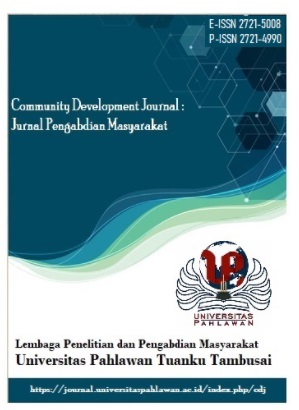GUESSING MEANING STRATEGY THROUGH READING DISCRIPTIVE TEXT FOR SENIOR HIGH SCHOOL STUDENTS
Keywords:
Descriptive Text, Guessing MeaningAbstract
Mastering English especially reading is required for the students. As a student, they have to master the text as well as possible. If a student comprehends the texts, they will get various kinds of knowledge through reading. In order to comprehend the text, the students should have a strategy, because the reading strategy that students use will influence the students reading comprehension. Guessing meaning is one of strategy that students can use. This study was conducted to examine the implementation of guessing meaning strategy and to explain the result after the implementation of the strategy. This study was qualitative research which used field notes; interview and students’ work as an instrument. The subjects of this study were the teacher and ten graders of students who were studying in a public school located in the suburban area. The data were gathered from the result of observation, the result of students' work and interviews, and the source of data collected from teacher activity and the students. All the data analyzed through three stages such as familiarizing and organizing, coding and reducing, and interpreting and representing. The result of the implementation guessing meaning strategy show that the teacher used guessing meaning strategy with 4 steps including ; decide the word that want to guess; look at the intermediate grammar context of the word that can be the students' reference to guess the meaning of the word; look at the wider context of the word usually beyond the level of the clause and often over several sentences; asked students to try to guess the meaning of the word and after that, the teacher will check the result of the answer. While the result after the implementation guessing meaning strategy showed that several clues in the sentence has enabled language learners to guess the meaning of the word from the context correctly. Vocabulary that language learners have collected during teaching and learning was helpful to understand the text. They also felt easy to find the explicit and implicit meaning of the word because they often used guessing meaning strategyReferences
Clarke, D. and Nation, I., 1980. Guessing the meaning of the words from the context: strategy and techniques Guessing System, 8(3), pp.211-220.
Clarke, P. J., Truelove, E., & Hulme, C. (2014). Developing Reading Comprehension. John Wiley & Sons, Ltd. PO19 8SQ, UK
Creswell. (2007). Educational Research. New Jersey: Upper Saddle River.
Hosseini, E., Sarfallah, S., Bakhshipour, F., & Dolatabadi, H. (2012). The Impact of Using Etymological Analysis on Teaching Vocabulary to EFL University Students. Theory And Practice In Language Studies,2(9). doi: 10.4304/tpls.2.9.1868- 1876
Iser, W. (1993). Prospecting: From Reader Response to Literary Anthropology. Baltimore, Md.: Johns Hopkins University Press.
Ivone, F. M. (2005). Teaching English as a Foreign Language in Indonesia : The Urge to Improve Classroom Vocabulary Instruction. TEFLIN Journal, Volume 16, Number 2, August 2005, 195–208.
Kaivanpanah, S., & Alavi, M. (2008). Deriving Unknown Word Meaning from Context. RELC Journal, 39(1), 77-95. doi: 10.1177/0033688208091141
Li, F. (2010). A Study of English Reading Strategies Used by Senior Middle School Students. Asian Social Science, 6(10). doi: 10.5539/ass.v6n10p184
Manga, B. (2014). Contextual factors in guessing word meaning from context in a foreign language. Procedia- Social and Behavioral Sciences, 116(1999),2670– 2674. https://doi.org/10.1016/j.sbspro.2014.01.633
Nayton (2013).Factor thatcontribute to successful reading comprehension.Dsf bulletin
Patel, M. and Jain, P., 2008. English Language Teaching.Jaipur [India]: Sunrise Publishers & Distributors.
Shokouhi, H., & Askari, H. (2010). The effec of guessing vocabulary in reading authentic texts among pre- university students. Arizona Working Papers in SLA & Teaching, 17, 75–89.
Siregar, S., 2019. Contextual Guessing Technique in Reading. English Education : English Journal for Teaching and Learning, 7(01), p.29.
Tavakoli, M. and Hayati, S., 2011. The Relationship between Lexical Inferencing Strategies and L2 Proficiency of Iranian EFL Learners. Journal of Language Teaching and Research, 2(6).
Downloads
Published
How to Cite
Issue
Section
License
Copyright (c) 2024 Muhammad Tahir

This work is licensed under a Creative Commons Attribution-ShareAlike 4.0 International License.






